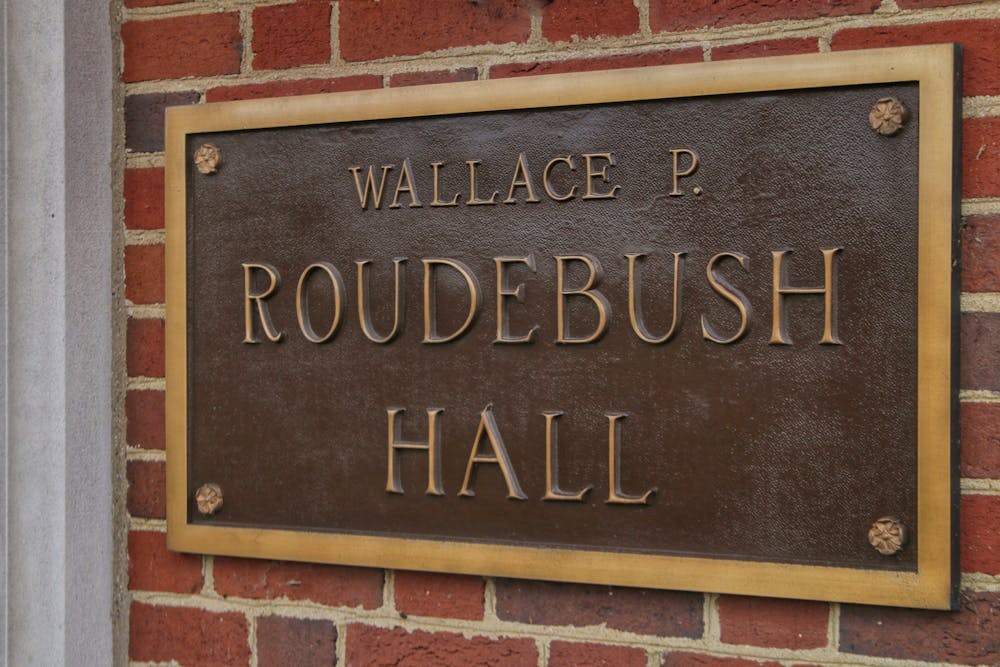Miami University will receive $12.9 million from the federal government as part of the CARES Act, a novel coronavirus economic stimulus package. Half of those funds, about $6.5 million, must go directly to students.
Vice President for Finance and Business Services and Treasurer David Creamer said it is his understanding that the funds will go to students who demonstrate the greatest financial need. However, he is unsure how much students will be receiving or when those funds will become available. Creamer said the university is waiting for more information from the federal government about how to distribute the incoming funds.
According to a press release from the US Department of Higher Education, the CARES Act allocated $14 billion to institutions of higher education across the country, and the $6.5 million going to Miami students will be distributed to the university immediately.
During University Senate’s budget symposium meeting on Monday, April 13, Creamer and Provost Jason Osborne updated Senators on the financial standing of the university after the novel coronavirus swept the country.
“We know there's going to be a lot of students who have enhanced needs because of the economic fallout from coronavirus,” Osborne said. “Our policy is to do as much as we can for our students in as many ways as we can do it.”
Osborne said in addition to the federal aid, Miami has set up an emergency fund for students that has received about 150 donations.
The other half of the funds Miami is receiving from the federal stimulus package will go directly to the university. However, Creamer said Miami is still waiting on guidance for the use of these funds.
In late March, Ohio Governor Mike DeWine announced immediate budget cuts of up to 20 percent. Creamer said that might affect where the funds from the stimulus package go.
“[DeWine] has not provided specifics as to how [the budget cuts] will affect higher education,” Creamer said. “But we are expecting that some of the stimulus funds, if not all, will likely offset cuts.”
Miami is also refunding its students for their room and board for the rest of the semester. Creamer said Miami students received an email about a week ago that committed Miami to issue the refunds no later than the end of the month.
“In reality, we're very optimistic that possibly as early as later this week the refunds will be going out to students,” Creamer said. “We're doing everything we can to issue those to students as quickly as possible.”
Creamer explained the refund amount will depend on what is being refunded, and the amount will be unique to each student.
Enjoy what you're reading?
Signup for our newsletter
Creamer said Miami is unique in the fact that students will be receiving direct refunds, as other institutions are providing refunds in the form of credit toward tuition or other costs.
“A lot of our students are facing immediate economic challenges,” Creamer said. “By making [the] refunds available now, those will hopefully help students to get through some of the immediate issues they are confronting.”
The majority of Monday’s meeting focused on the future of Miami and its budget. Osborne said there are many uncertainties surrounding the incoming class of students including its size, the loss of international students and the possible increase in aid.
“If we do manage to bring in a strong class of, say, 4,000 to 4,300 like we did last year,” Osborne said, “that doesn't mean that our net revenues will be similar to that of last year. It's just impossible to predict at this moment.”
Osborne said so far, the incoming class size is larger than estimated but is slightly below last year's class size.
The enrollment of international students, which makes up about 11.8 percent of Miami’s total enrollment, has become uncertain for the upcoming school year.
“We don't know if [international students] are going to want to travel,” Osborne said. “If they do want to travel, will they be cleared to travel? We've already had a downward trend over the last few years in international students coming to the U.S. So that's a significant unknown.”
Miami, along with many other universities, has extended its enrollment deadline to June 1.
In addition to the uncertainty surrounding the makeup of the incoming class, Osborne said Miami may need to offer increased financial aid to incoming students impacted by the coronavirus.
“Our enrollment management and financial aid services are talking with both incoming students and returning students and trying to evaluate what is the need,” Osborne said.
In fall 2019, Miami employed about 230 visiting assistant professors (VAPs), which accounted for more than 15 percent of all professors at Miami. Osborne said about 100 VAP appointments will be offered for the coming year. However, he said this number may change depending on how students register.
“This is probably the start of a process,” Osborne said. “It's not the end of a process.”
Osborne is uncertain about whether students will return to campus in the fall. He said Miami will follow the lead of the governor and the department of health.
“We do intend to return to residential face-to-face instruction and typical operations for the fall, hopefully sooner,” Osborne said. “But the other thing we know is that we don't control this.”
While Osborne said Miami is in good standing financially compared to many other institutions, many unknown factors are still at play.
“The one thing I think we should take away from this is that even in the optimistic scenarios, continuing to spend the way we historically have would be unlikely,” Osborne said.




